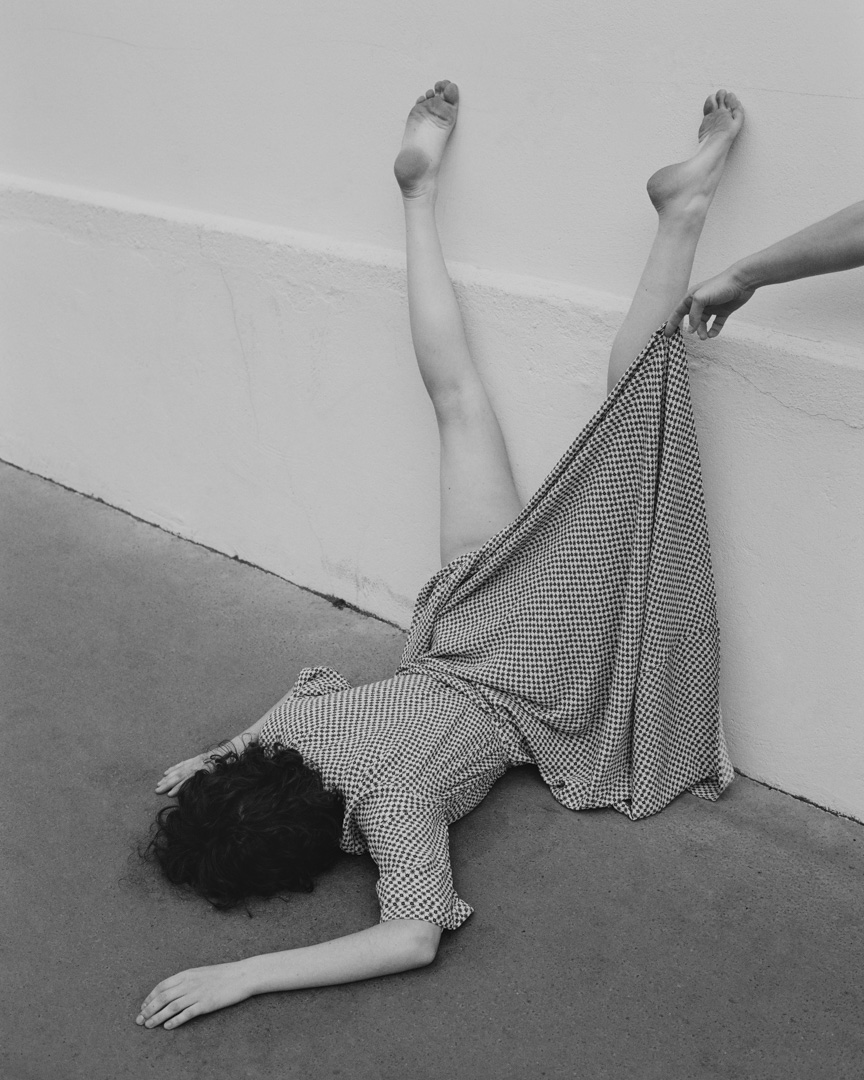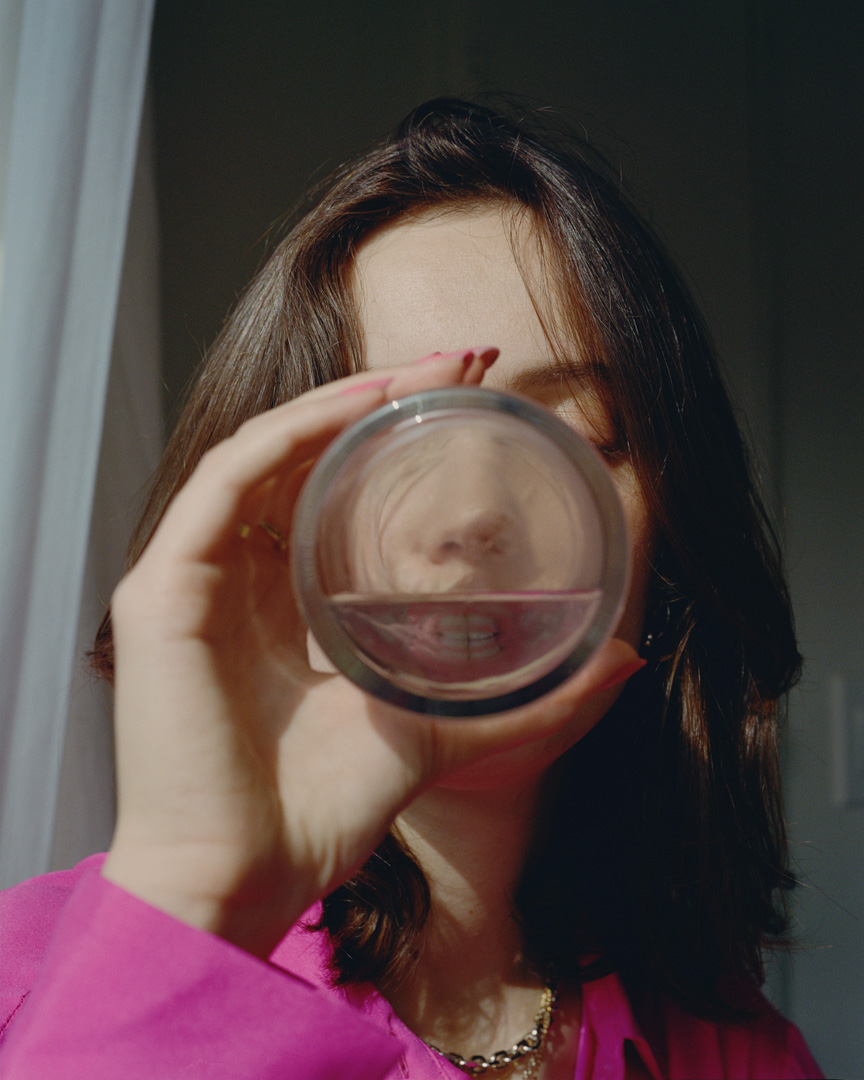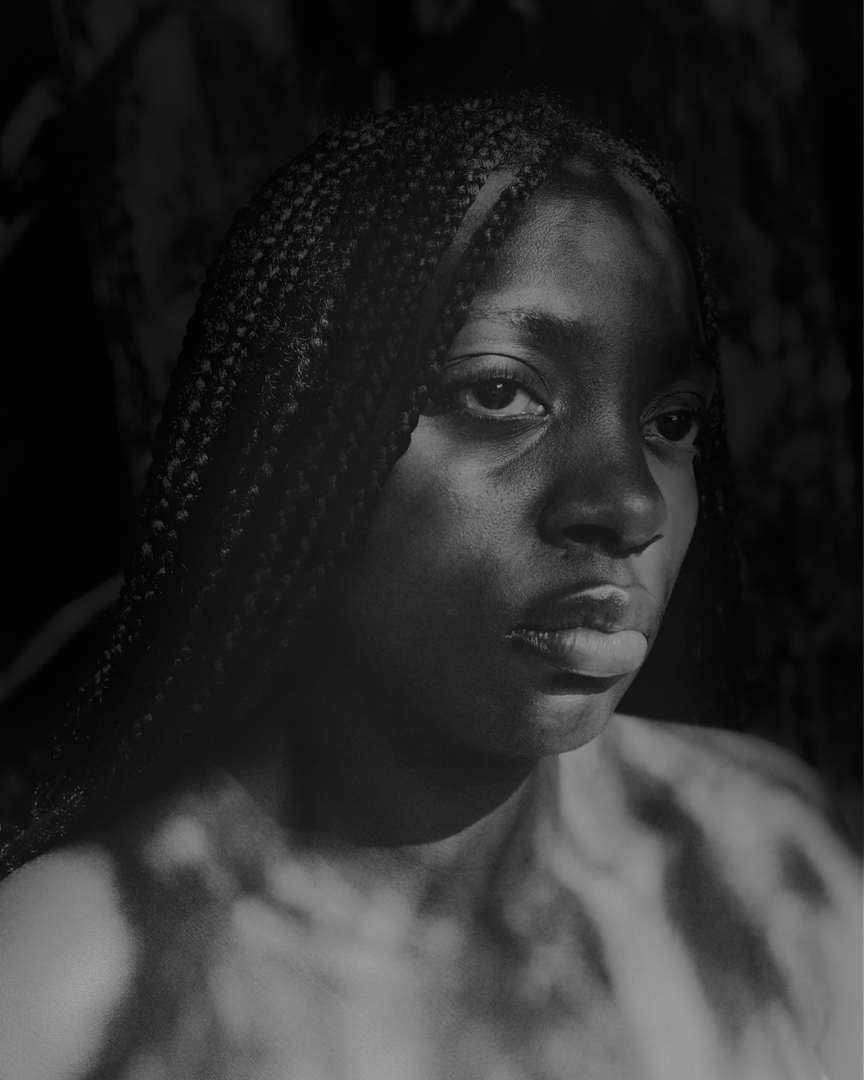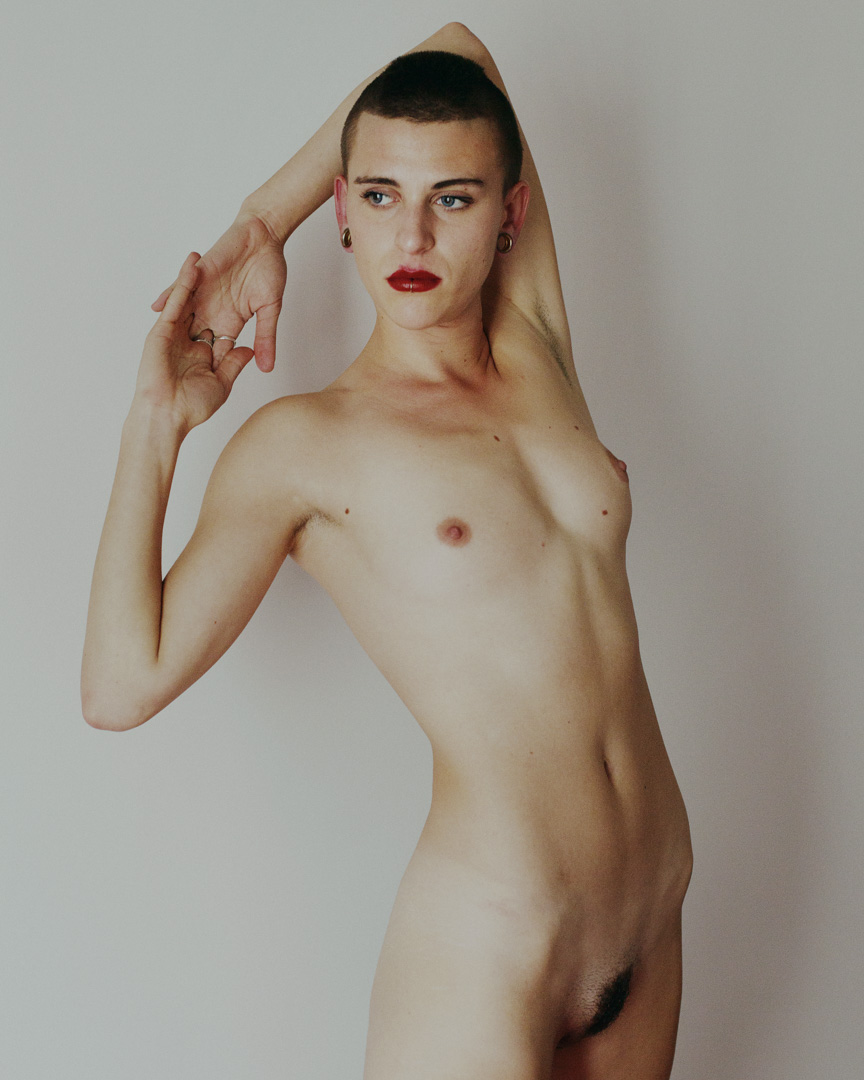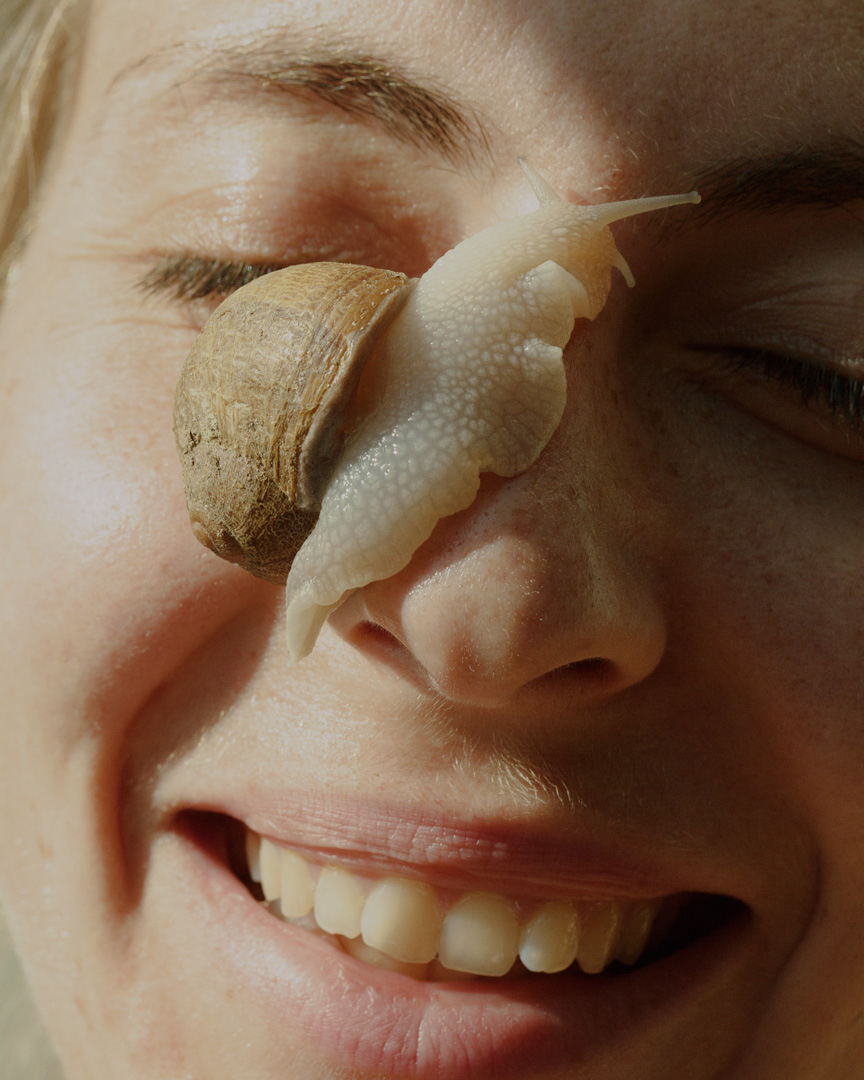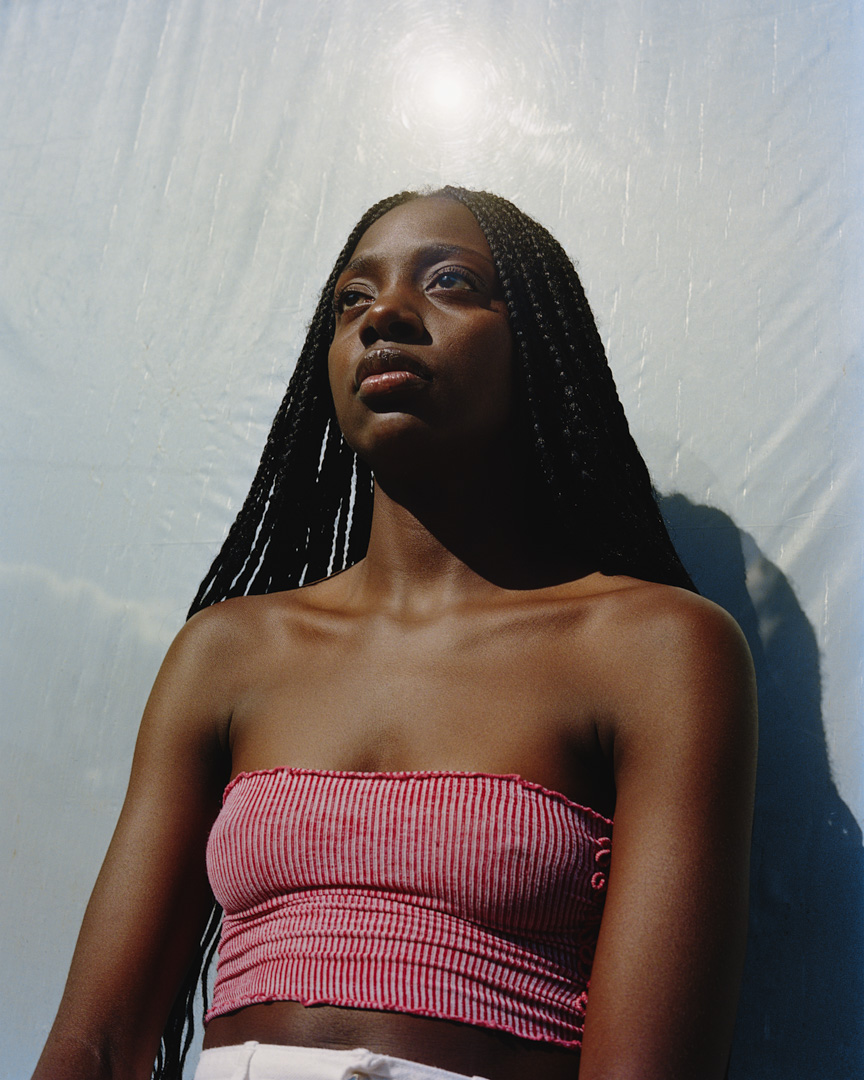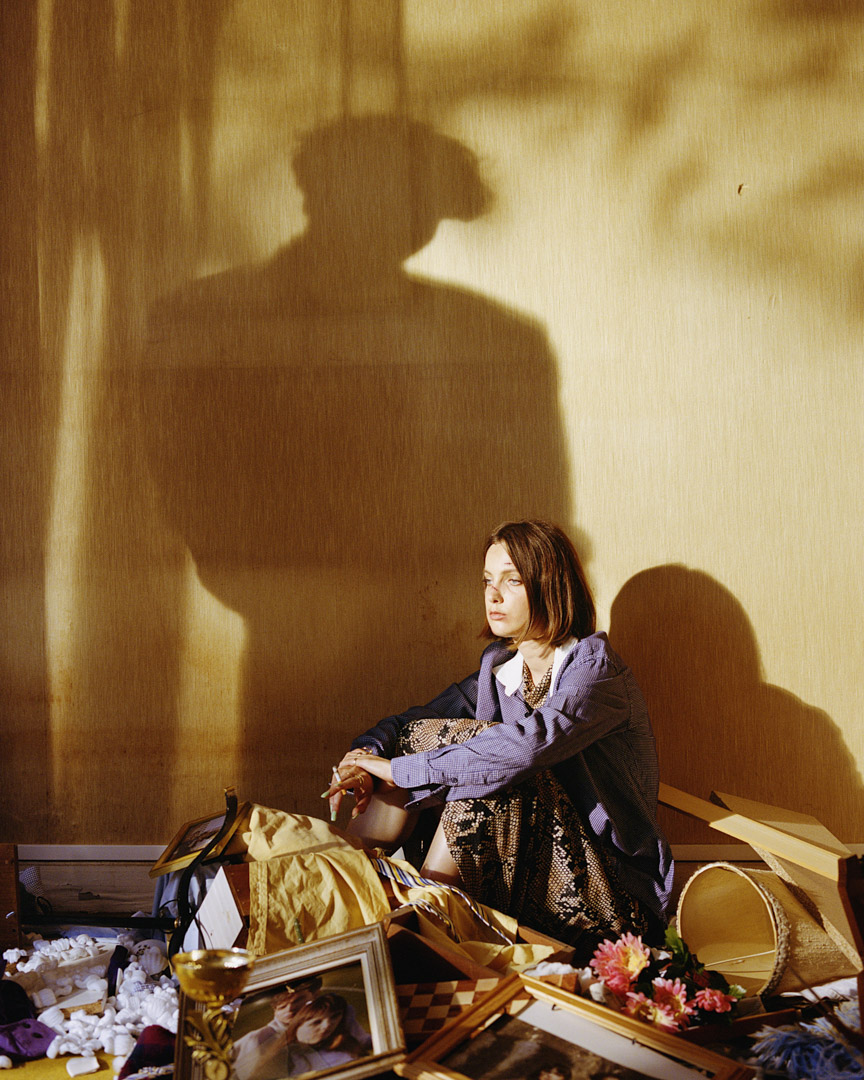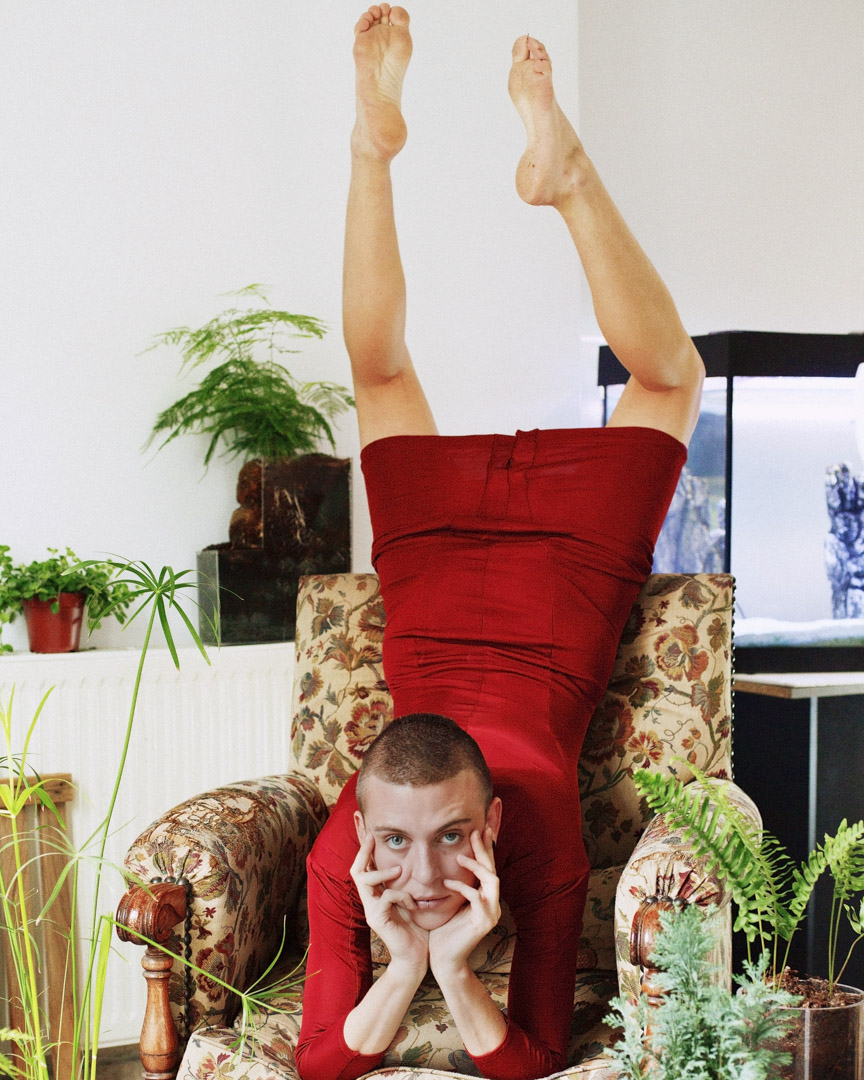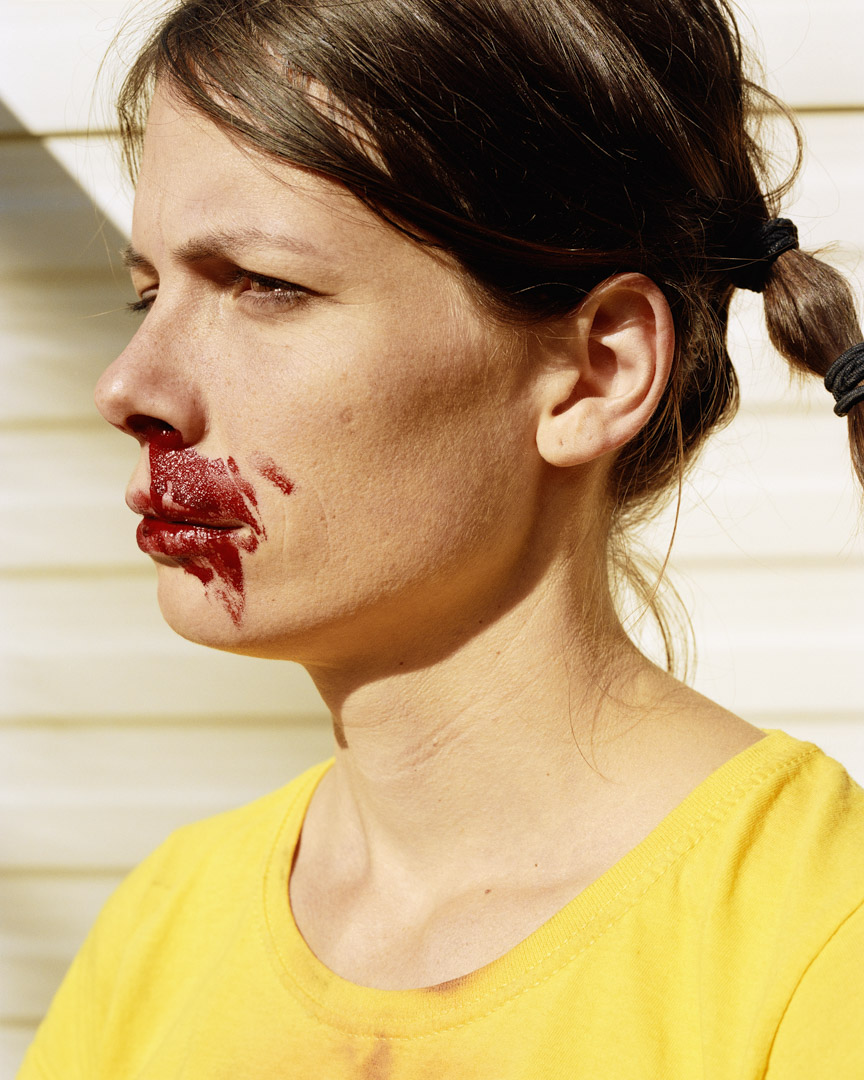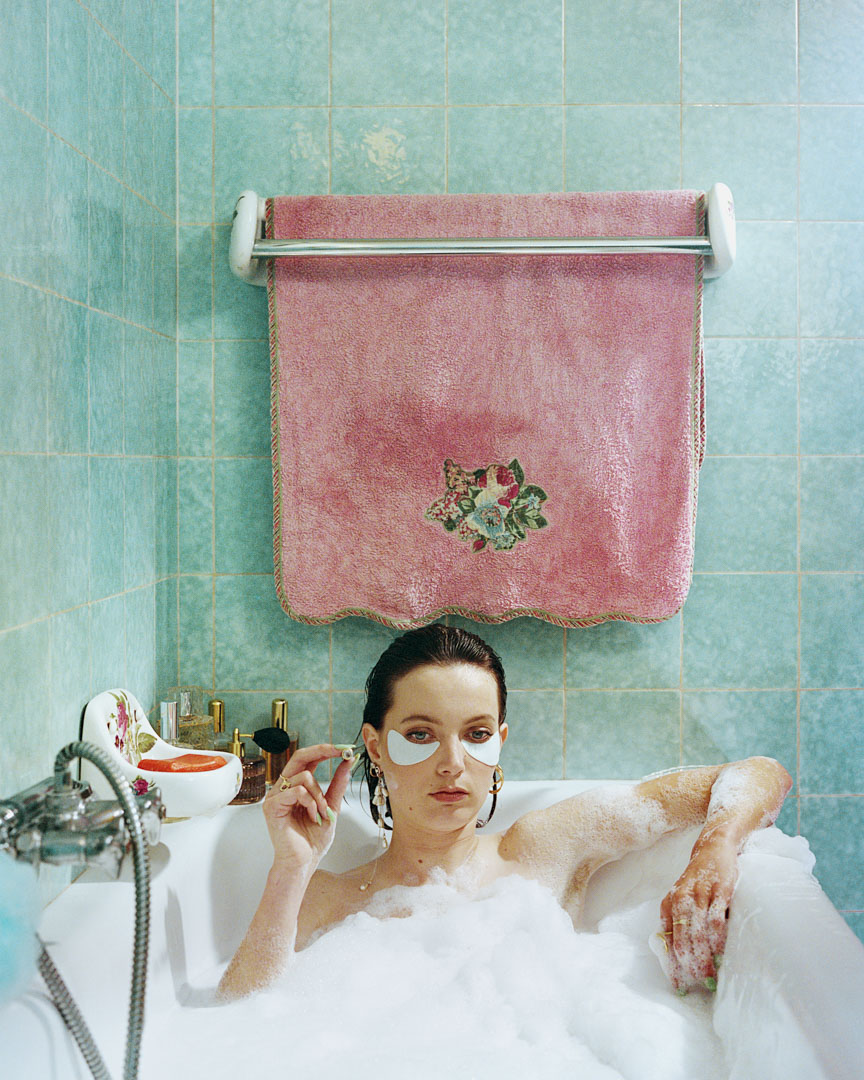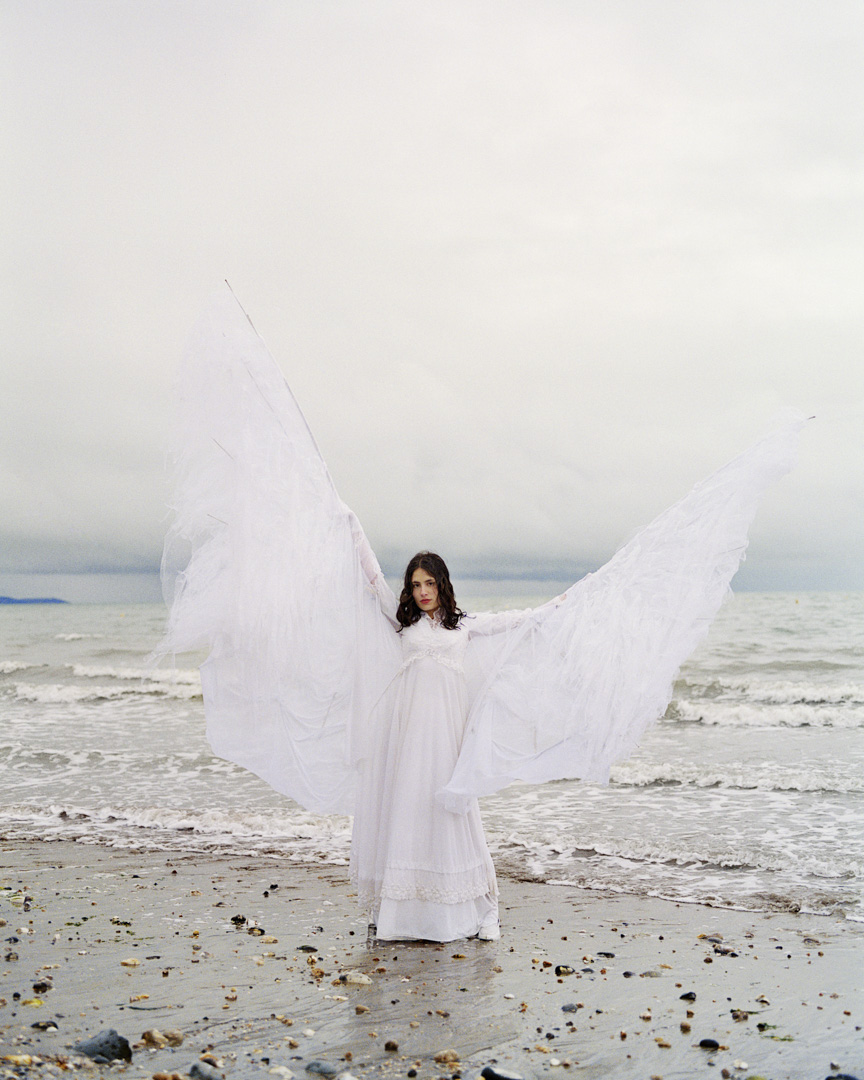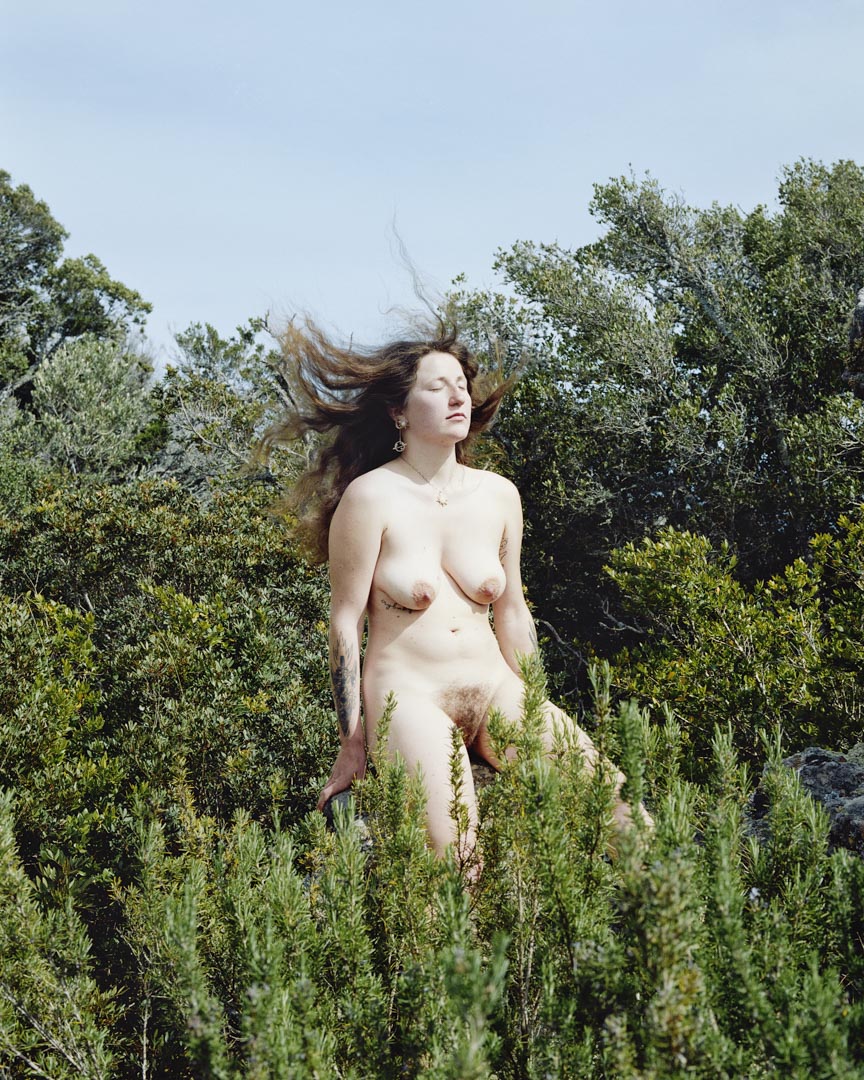Women under influence, 2019-ongoing
If my approach to photography could be described as “naturalist”, I provoke situations and “playgrounds” that are fertile for the production of images. Having a rather daily and instinctive personal practice, subjects often impose themselves on me, sometimes before and during the production of images. Theoretical research (literary, philosophical, documentary or even sociological) then comes to direct the form that my work takes. My series can also be the result of a cinematographic equivalent of editing: by taking care to consult my archives and daily photos taken spontaneously, obsessions and recurrences sometimes emerge that allow me to understand, isolate and deepen subjects.
For the series presented here, it is above all about portraits, where vulnerability is strength. Friends and acquaintances embody several versions of women, and at the same time they are only portraits, a stopped moment in which a representation is played out. They are presented in their singularity but also in a broader idea of the representation of women, what they embody and what they become. It is therefore a question of their relationship to themselves, to their bodies, from which there emanates sometimes a great serenity and other times a kind of inherent discomfort. These portraits are a vain attempt to access their intimacy, their interiority, which in any case brings me closer to my own.
Don’t you think I understand?
The hopeless dream of being.
Not seeming, but being.
In every waking moment aware, alert.
The tug of war – what you are with others and who you really are.
A feeling of vertigo and a constant hunger to be finally exposed.
To be seen through, cut down, even obliterated.
Every tone of voice a lie.
Every gesture false.
Every smile a grimace.
Commit suicide?
Oh no.
That’s unthinkable.
You don’t do things like that.
But you can refuse to move and be silent.
Then, at least you’re not lying.
You can shut yourself in, shut out the world.
Then you don’t have to play any roles,
show any faces,
make false gestures.
You’d think so…
But reality is diabolical.
Your hiding-place isn’t watertight.
Life trickles in everywhere.
You’re forced to react.
Nobody asks if it’s real or not, if you’re honest or a liar.
That’s only important at the thaeter, perhaps noot even there.
I understand you, Elisabeth.
I understand why you’re silent, why you don’t move.
Your lifelessness has become a fantastic part.
I understand and I admire you.
I think you should play this part until it’s done…
Until it’s no longer interesting.
Then you can leave it, as you leave all your roles.
Excerpt from Ingmar Bergman’s Persona.

